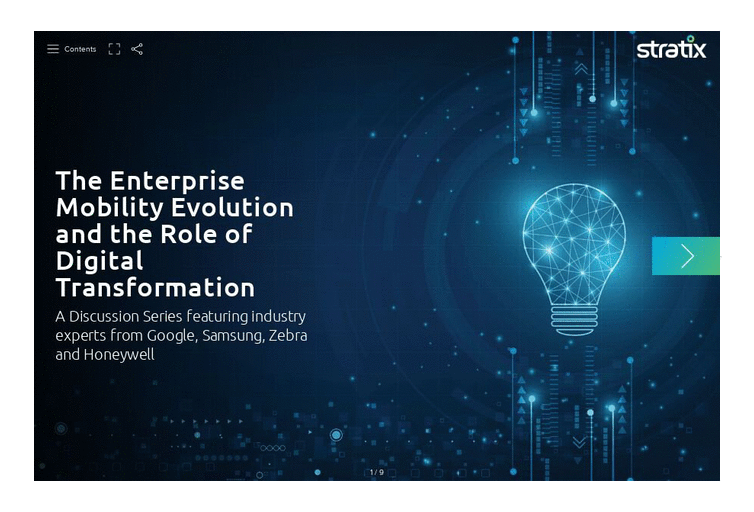Big Announcements at Apple’s WWDC20
Written by Tony Glinski
2 Min Read
Blog
Apple’s, WWDC20 conference has arrived for 2020, bringing a slew of announcements characterized at the show as “Our biggest updates ever. Only bigger.”
In the midst of a “new normal” upending the consumer tech industry for so many, Apple’s 2020 slate has them:
- Doubling down on privacy with new app privacy disclosure prompts
- Differentiating iPad with new iPad-first features and Apple Pencil capabilities.
- Announcing the first ever watchOS public beta, along with customizations for watch faces to further personalize the device and to deliver your choice of key business KPIs in real time, right to your wrist.
- Transitioning away from Intel-based processors for their Macs, and instead creating their own silicon.
For the details, let’s dive in….
iPad
With Apple users, it’s all about the experience that the devices deliver. The customer has pushed and sometimes demanded iOS (now iPadOS) for their business due to personal preference, comfortability and productivity for their workflows. After all, we all want to be more efficient with our time – especially when we work from home. New app designs with iPad-specific features make many daily use cases even better when using the iPad. Perhaps most notably, Apple’s new “Scribble” is a game changer. With Scribble, Apple aims to “makes handwriting as powerful as typed text” by converting any Apple Pencil writing within an onscreen field to text). As for enterprise impact, we’d be remiss not to mention the capabilities and potential the new LiDAR scanner and ARKit 4 offer the iPad Pro. Now, augmented reality overlays can enable uber-realistic virtual object occlusion, seamlessly blending digital objects and real physical environments.
Apple Watch
With over 20,000 WatchOS apps available today, watchOS 7 has truly come into its own as a leader in the smartwatch segment. So, what does this mean for business? Time will tell and developers will answer, but one distinct possibility is real-time KPI data and safety alerts for business scenarios taking place in potentially hazardous environments. A native watchOS example of this was highlighted by Apple around handwashing. Yes, Apple Watch will be able to recognize you’re washing for that 20 seconds we’ve all come accustomed to. Apple Watch does this by listening for running water and leveraging the accelerometer to know you’re making those hand washing motions. It then starts a countdown on the face. When you’re done, Apple Watch will let you know, and you’ll have made yourself and your colleagues safer.
Mac
macOS has now moved from the almost two-decades-long “X” to the designation of 11. It’s safe to say that signifies a big leap for the macOS. Apple’s very own silicon will be running the show with the power to accelerate computing into the future with more muscle for sophisticated tasks such as power-hungry graphics and 3D modeling. These are huge announcements for developers as their apps will be able to reap the benefits of the new chipset with very little development time. To illustrate this, Apple has announced that all native Mac apps will be supported Day One on the new silicon giving both customer and business use cases a ramp right out of the box. The new macOS, Big Sur, is borrowing more from iPadOS where the integrity and iconic nature of Mac App icons are being preserved but now will be enclosed in the familiar box shape we’ve come to know from iOS and iPadOS. Control Center has also been brought over to the Mac. In fact, MDM administrators familiar with iOS and iPadOS management environments will be right at home when adding on management for their Mac practice. It’s obvious that the hand off experience from iPhone to iPad to Mac will be more and more seamless with every new OS release for consumers and IT.
Privacy
Traditionally, Apple has always operated with a user-first ethic, keeping personal data under lock and key (or “lock and finger” or “lock and face” as the years have gone on). Apple’s principles of data minimization, on-device intelligence, security protections, transparency and control have reshaped the user experience. Apple has addressed privacy in these latest releases with apps now required to reflect the types of data they are collecting at the time the user is asked to download. Additionally, Safari is detailing the types of data that websites are capturing. For businesses, this new level of transparency could impact IT decisions as far as allowance of websites and apps that can be accessed or pushed via MDM. The impact on app and web development are likely to be significant, especially with a workforce that is now often operating outside of company walls with company data potentially more at risk with their mixed-use cases.
With changes to consumer behavior (and the world at large) comes business evolution as the lines of work and home are now and perhaps forever blurred for many businesses. How will you adapt to the changes and utilize Apple’s integrated solutions?
Let Stratix help by leveraging our integrated relationship Apple and its ecosystem of partners. Our SmartMobile Services for Apple help you craft personalized solutions for iOS and macOS environments, including design, migration, support, and endpoint management.
See more WWDC20 highlights here.

The Role of Enterprise Mobility in Digital Transformation
We interviewed industry experts to get their most valuable insights including real world examples of successful, mobile-led transformations.
Read the eBook













